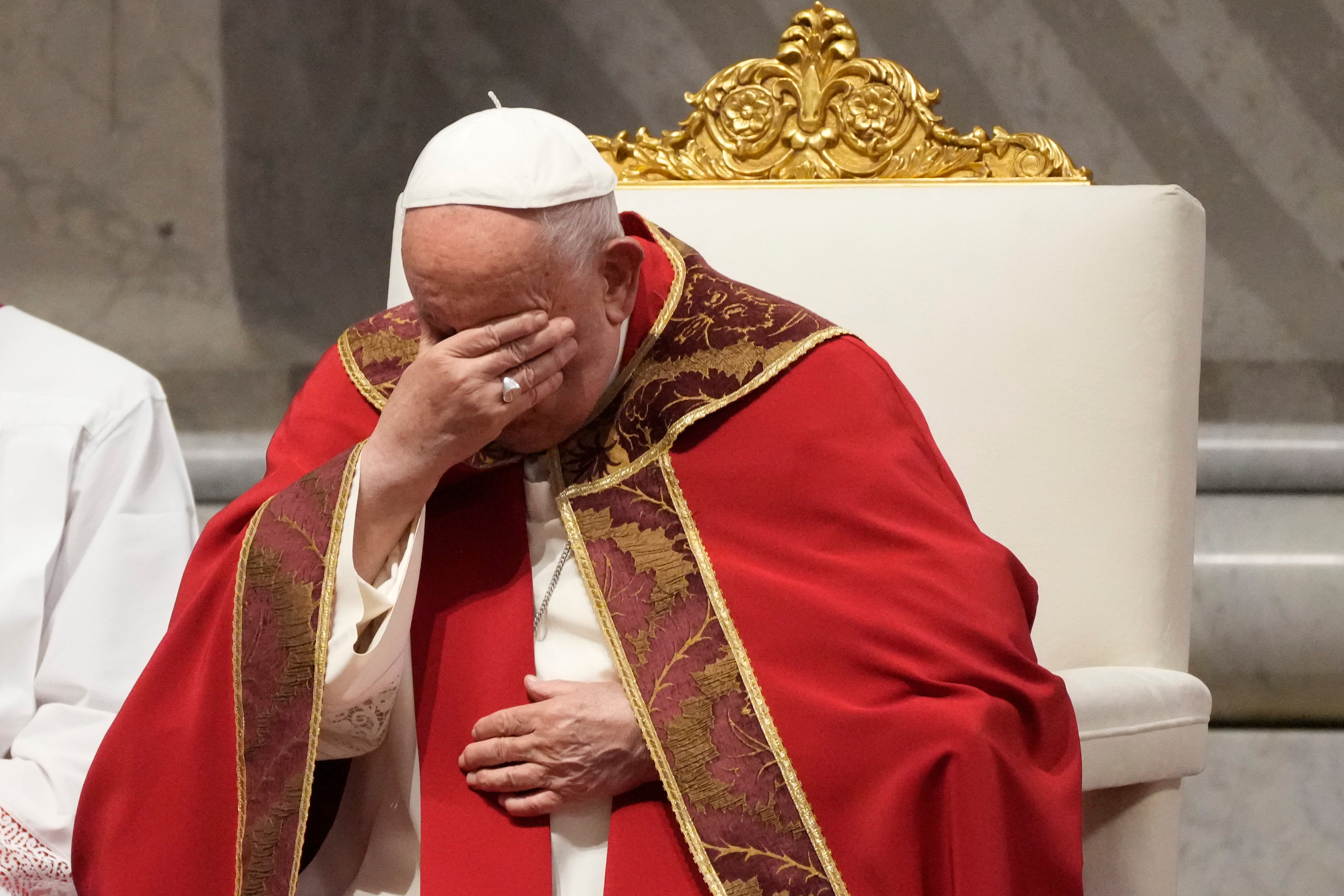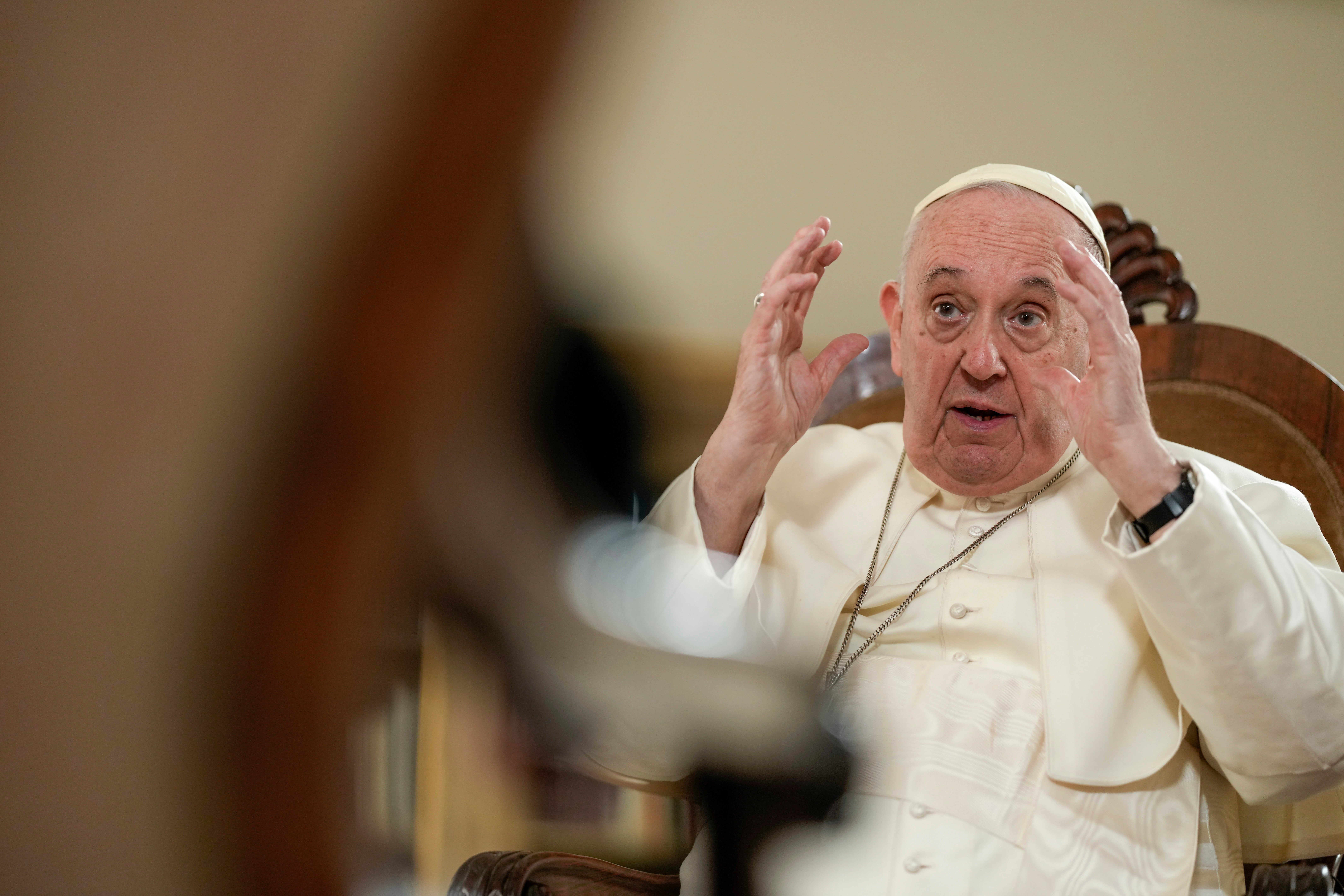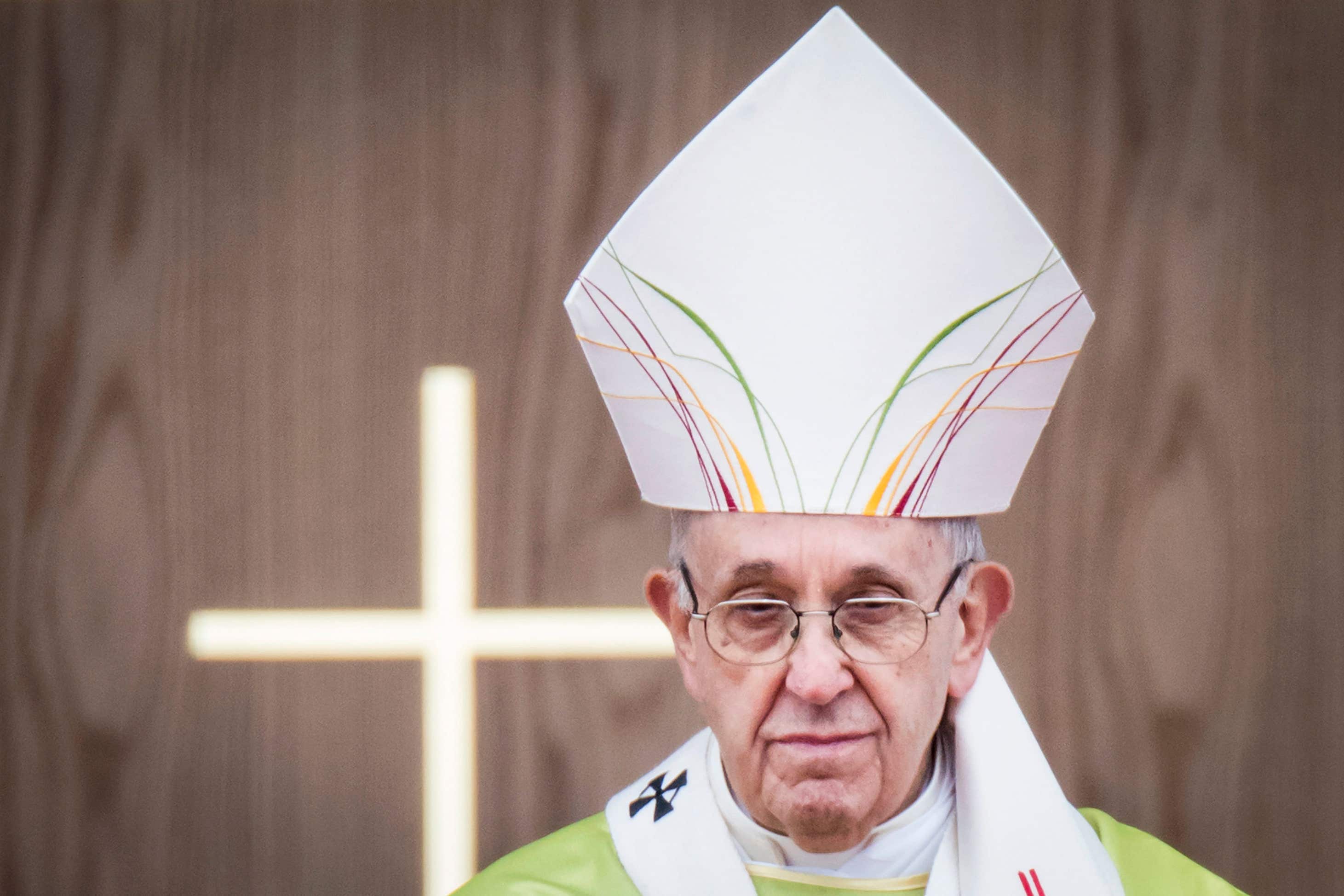Those close to the Pope try to make sense of his homophobic PR disaster
Pope’s reported use of homophobic term caused shock and pain

Francis is a pope of many firsts: the first to use that name, the first from Latin America, the first from the Jesuit religious order. Since last week, he’s also the first pope to apologise for using foul language.
Francis was quoted by Italian media as using the Italian term “frociaggine”, roughly translating as “faggotness” or “faggotry”, in a closed-door May 20 meeting with Italian bishops.
The Vatican issued an apology, but after that, other Italian reports attributed more gay slurs to the pope, as well as chauvinist language associating women with gossip, in a separate meeting with Roman priests.
Friends of the pontiff and top Vatican watchers insist that what has possibly been the biggest PR disaster of his 11-year papacy should not obscure his record as a reforming, LGBT-friendly pope.
However, some say the 87-year-old’s gaffe fits into a pattern of papal missteps that undermine his authority and raise questions about his convictions and the reform path he has in mind for the Church.
“Anyone who has been online... has seen the pope reduced to a meme, a social media tool for anyone to make jokes about, some very funny, some in very poor taste,” said Massimo Faggioli, a professor of theology and religious studies at Villanova University.
“The word of a pope should carry some weight, some credibility. Whether or not you agree with him, you’d normally think that what he says is thought through... Now it is a bit more difficult (to think that),” he said.

Francis has a reputation for having a salty tongue, especially in private, so while the reported anti-gay slurs shocked many, they did not seem out of character to people who know him.
“I’m obviously not justifying his use of an offensive term ... but it is normal for him in private to speak very, very directly,” papal biographer Austen Ivereigh said. “He doesn’t talk like a politician.”
A personal friend of the pope - a gay Argentine man who has known him for more than 30 years and asked not to be named - said that Francis knows he has a problem with foul language.
“He calls himself a ‘bocon’, which kind of translates (from Spanish) into someone who can’t keep his mouth shut,” the man told Reuters. “He has never been diplomatic. I am actually surprised something like this didn’t happen earlier.”
When Francis went to Ireland in the 1980s to try to learn English, the friend recalled, “his teachers were horrified by the way in the classroom he would use English swear words he had picked up”.
The same source said Francis had come “a long way in terms of openness towards LGBT rights” for a man of his generation, noting he grew up in a very conservative family that considered divorcees - let alone gay people - social pariahs.
Early in his papacy, Francis famously said: “If a person is gay and seeks God and has good will, who am I to judge?”. Last year he allowed priests to bless members of same-sex couples, triggering a substantial conservative backlash.
He has also sat down for lunch at the Vatican with transgender sex workers and formed a close relationship with Father James Martin, a prominent American Jesuit priest who ministers to the LGBT community.
“The idea that he would be homophobic makes no sense to me,” Martin said in emailed comments. “His record on LGBTQ people speaks for itself. No pope has been a greater friend to the LGBTQ community.”
Francis’ Argentine friend also praised the pope’s support for civil partnerships - though Francis remains opposed to same-sex marriages - and his quiet efforts to help victims of homophobic crimes in Argentina in the 1990s, “when being gay was tough”.

Nevertheless, the pope’s profanity has upset many.
“Even if intended as a joke, (it) reveals the depth of anti-gay bias and institutional discrimination that still exist in our church,” Marianne Duddy-Burke, head of LGBT Catholic rights group DignityUSA, said in a statement.
For Andrea Rubera, spokesperson for Italian Catholic LGBT group Paths of Hope, the first reaction was disbelief. “At the beginning we were really thinking it was not true, that it was something like a piece of gossip,” he said.
According to reports, Francis’ gaffe came as he discussed with bishops the question of gay candidates for priesthood. The official Church position is that they should be barred from ministry if they are sexually active.
Both Faggioli and Ivereigh said the issue is particularly sensitive for the Italian Catholic Church, given what they said was an active gay “subculture” in some of its seminaries.
“My sense was that the pope was responding to a question about certain behaviour in Italian seminaries, rather than closing off the priesthood to all gay men,” Father Martin said.
Join our commenting forum
Join thought-provoking conversations, follow other Independent readers and see their replies
Comments
Bookmark popover
Removed from bookmarks